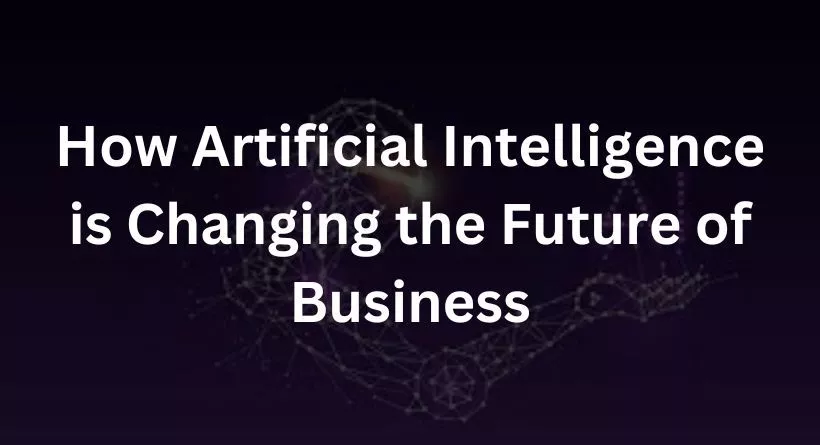
Artificial Intelligence (AI) is revolutionizing the business landscape, driving unprecedented changes and opportunities. In this article, we will explore how AI is changing the future of business by enhancing operations, customer relations, marketing, supply chain management, finance, and human resources. We will also delve into the challenges and concerns associated with this transformation and discuss the exciting future that lies ahead.
The Role of Artificial Intelligence in Business
A Brief History of AI in Business
Artificial Intelligence has a rich history in the business world, dating back to the 1950s when the first AI programs were developed for business-related tasks. However, it is in recent years that AI has truly come into its own, thanks to advances in computing power and the availability of vast amounts of data.
The Evolution of AI Technology
AI has evolved from basic rule-based systems to advanced machine learning algorithms and neural networks. This progression has allowed businesses to harness the power of AI for a wide range of applications.
AI in Business Operations

Improving Efficiency and Productivity
AI-driven automation streamlines business operations by handling repetitive tasks, thus freeing up human resources to focus on more complex and creative tasks. This significantly improves overall efficiency and productivity.
Enhancing Decision-Making Processes
AI empowers businesses with data-driven insights and predictive analytics. It assists in making informed decisions, reducing the margin of error, and enhancing business strategies.
You may also like reading: How AI Works: The Basics You Need to Know
AI in Customer Relations
Personalized Customer Experiences
AI algorithms analyze customer data and behaviour to offer highly personalized experiences. This is evident in the recommendations on e-commerce websites and streaming platforms, which keep customers engaged.
Chatbots and Virtual Assistants
AI-driven chatbots and virtual assistants provide immediate customer support, improving response times and customer satisfaction.
AI in Marketing and Advertising
Targeted Advertising Campaigns
AI analyzes user data to create highly targeted advertising campaigns, resulting in more effective marketing strategies and better ROI.
Data-Driven Marketing Strategies
AI tools help businesses gain insights into customer behaviour and preferences, enabling the creation of data-driven marketing strategies that adapt in real-time.
AI in Supply Chain Management
Predictive Analytics
Artificial Intelligence predicts demand and helps in inventory optimization, reducing excess stock and ensuring products are available when customers need them.
Inventory Optimization
AI-driven supply chain management ensures optimal inventory levels, reducing costs and minimizing delays.
AI in Finance
Fraud Detection and Prevention
AI algorithms can detect fraudulent activities in real-time, preventing financial losses and protecting customer data.
Algorithmic Trading
AI-driven algorithms make lightning-fast trading decisions, capitalizing on market opportunities that would be impossible for humans to detect.
AI and Human Resources

Recruitment and Talent Management
AI streamlines the recruitment process by sifting through resumes, identifying top candidates, and even conducting initial interviews.
Employee Engagement
AI tools can monitor and improve employee engagement by analyzing data on job satisfaction, performance, and more.
Challenges and Concerns
Ethical Considerations
AI’s ability to collect and analyze vast amounts of data raises ethical concerns related to privacy and security. Businesses need to ensure responsible data usage.
Job Displacement
The automation of certain tasks through AI may lead to job displacement in some industries. It’s crucial to address the impact on the workforce.
The Future of Business with AI
The future of business is closely intertwined with AI. As technology continues to advance, AI will play an even more significant role in shaping the business landscape. Embracing AI technology will be essential for businesses to remain competitive and relevant.
Conclusion
Artificial Intelligence is transforming the future of business by enhancing operations, customer relations, marketing, supply chain management, finance, and human resources. While challenges and ethical concerns must be addressed, the potential benefits are immense. The businesses that adapt and embrace AI will be better positioned to thrive in the rapidly evolving business environment.
FAQs
Q1: What is the significance of AI in business?
AI has a significant impact on business by improving efficiency, customer relations, marketing, supply chain management, finance, and human resources.
Q2: How can AI improve customer relations?
AI personalizes customer experiences and provides efficient customer support through chatbots and virtual assistants.
Q3: Are there any ethical concerns with AI in business?
Yes, ethical concerns include data privacy and the potential job displacement resulting from AI automation.
Q4: Will AI replace human jobs?
AI may automate certain tasks, potentially leading to job displacement, but it can also create new job opportunities in AI-related fields.
Q5: What industries are likely to benefit most from AI in the future?
Industries such as healthcare, finance, and e-commerce are expected to benefit significantly from AI in the future.





